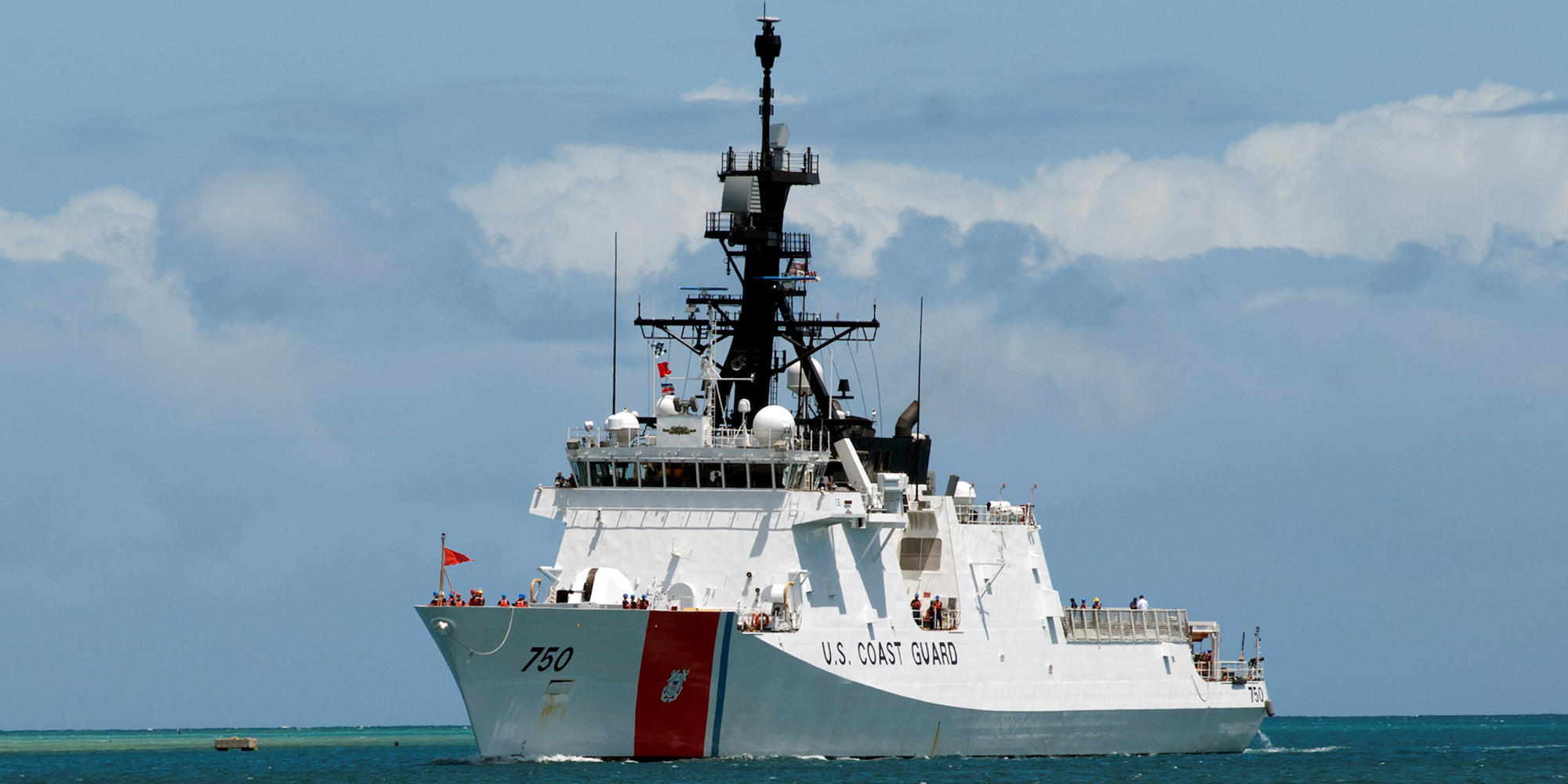- The Pentagon has disinvited China from an international military exercise over its militarization of islands in the South China Sea.
- “China’s continued militarization of disputed features in the South China Sea only serve to raise tensions and destabilize the region,” a spokesman said.
- Over the past several years, China has built up military fortifications on islands in the South China Sea, raising tensions in relation to territorial disputes in the region.
- The biennial Rim of the Pacific exercise, known as RIMPAC, is set to occur in June and involves more than two-dozen nations.
The Pentagon has disinvited China from an international military exercise over its militarization of islands in the South China Sea.
The biennial Rim of the Pacific exercise, known as RIMPAC, is set to occur in June and involves more than two-dozen nations. Participation in RIMPAC is a sign of legitimacy in the eyes of the international community.
China has been included in the past, but the US military retracted its invitation this year in an apparent effort to send a message about its activities in the South China Sea.
“China’s continued militarization of disputed features in the South China Sea only serve to raise tensions and destabilize the region. As an initial response to China’s continued militarization of the South China Sea we have disinvited the PLA Navy from the 2018 Rim of the Pacific (RIMPAC) Exercise,” a Department of Defense spokesman, Lt. Col. Christopher Logan, said in a statement.
"China's behavior is inconsistent with the principles and purposes of the RIMPAC exercise," Logan added.
Over the past several years, China has built up military fortifications on islands in the South China Sea, raising tensions in relation to territorial disputes in the region.
"We have strong evidence that China has deployed anti-ship missiles, surface-to-air missile (SAM) systems, and electronic jammers to contested features in the Spratly Islands region of the South China Sea," Logan said.
At a joint press conference between Secretary of State Mike Pompeo and Chinese Foreign Minister Wang Yi on Wednesday, the two were asked to
"We've expressed consistent concerns about the militarization of the South China Sea...I will leave it to our militaries to talk about their efforts together," Pompeo said, placing the primary responsibility for the issue on the Pentagon.
Meanwhile, Wang said the Pentagons move was not constructive, taken too "lightly," and unhelpful to "mutual understanding between China and the US."
"We hope the US will change such a negative mindset. Both the China and US are big countries and well positioned to have greater cooperation at sea," Wang added. The Chinese foreign minister said exercises like RIMPAC can help create "mutual trust" and assist major powers in moving toward "world peace," while defending China's activities in the South China Sea as "defensive" in nature.
Wang noted the US has plenty of military assets in the Pacific, such as in Guam and Hawaii, and claimed China's deployment was on a "much smaller scale" than what's displayed by the US military.
Despite President Donald Trump's attempt to build relations with Chinese President Xi Jinping, China and the US have butted heads on a number of issues in recent weeks.
Earlier this week, Trump claimed Beijing may have influenced North Korean leader Kim Jong Un's recent about-face on an impending summit between the US and North Korea. Kim recently visited Xi in the Chinese capital.
On Wednesday, Wang said he "hoped" the summit between Kim and Trump would go ahead as scheduled, stating "now is the time" for such talks. Correspondingly, Pompeo said the Trump administration is continuing to prepare for the summit.
The Pentagon didn't respond to a request for comment on whether the Korea talks played any part in China's rescinded invitation.


